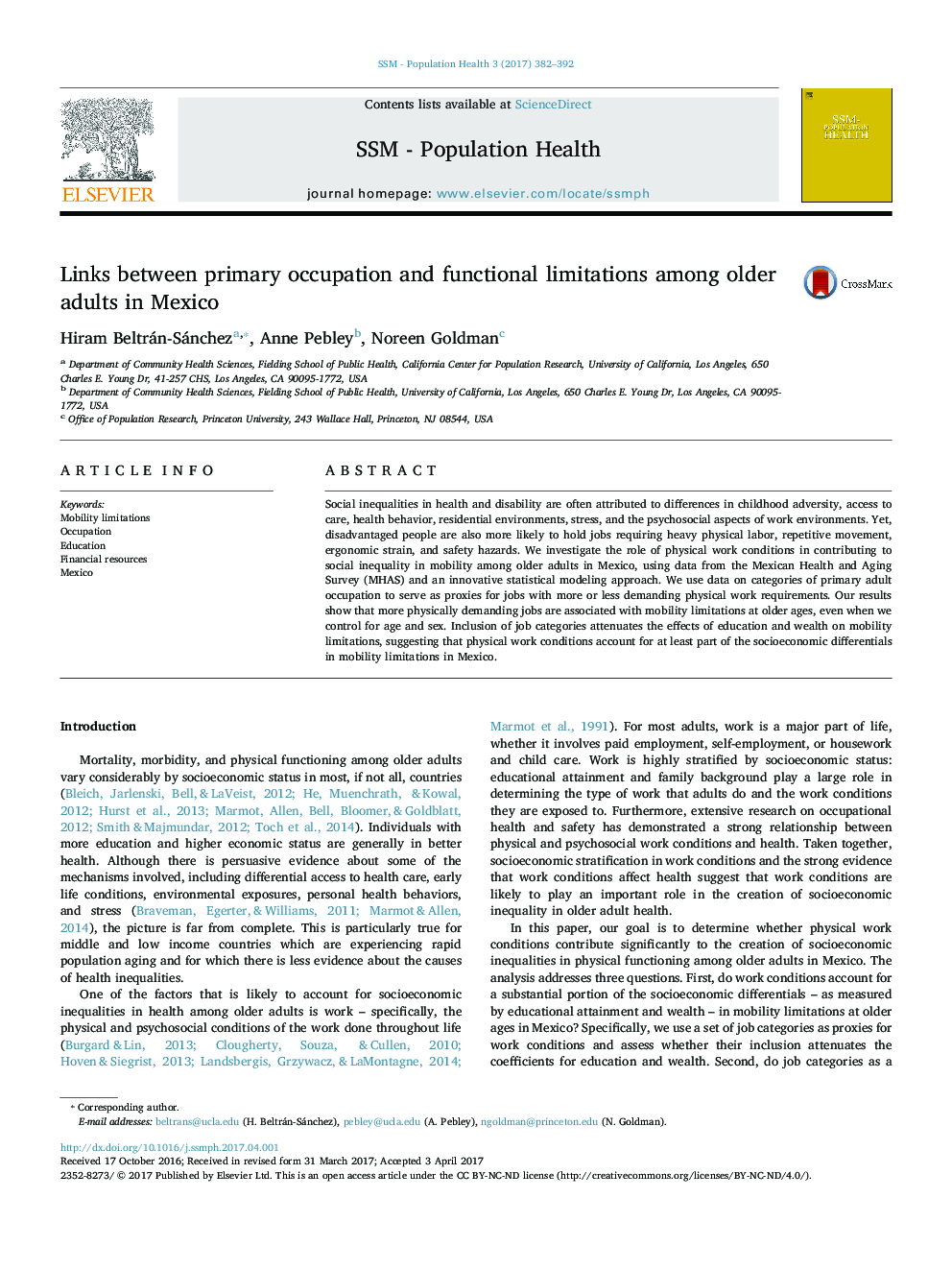| Article ID | Journal | Published Year | Pages | File Type |
|---|---|---|---|---|
| 5123269 | SSM - Population Health | 2017 | 11 Pages |
â¢Physical work conditions as contributor to social inequality in physical functioning.â¢Mexican older adults who worked in heavy physical jobs have more limitations.â¢Job categories account for gradients in health by education and by wealth in Mexico.
Social inequalities in health and disability are often attributed to differences in childhood adversity, access to care, health behavior, residential environments, stress, and the psychosocial aspects of work environments. Yet, disadvantaged people are also more likely to hold jobs requiring heavy physical labor, repetitive movement, ergonomic strain, and safety hazards. We investigate the role of physical work conditions in contributing to social inequality in mobility among older adults in Mexico, using data from the Mexican Health and Aging Survey (MHAS) and an innovative statistical modeling approach. We use data on categories of primary adult occupation to serve as proxies for jobs with more or less demanding physical work requirements. Our results show that more physically demanding jobs are associated with mobility limitations at older ages, even when we control for age and sex. Inclusion of job categories attenuates the effects of education and wealth on mobility limitations, suggesting that physical work conditions account for at least part of the socioeconomic differentials in mobility limitations in Mexico.
